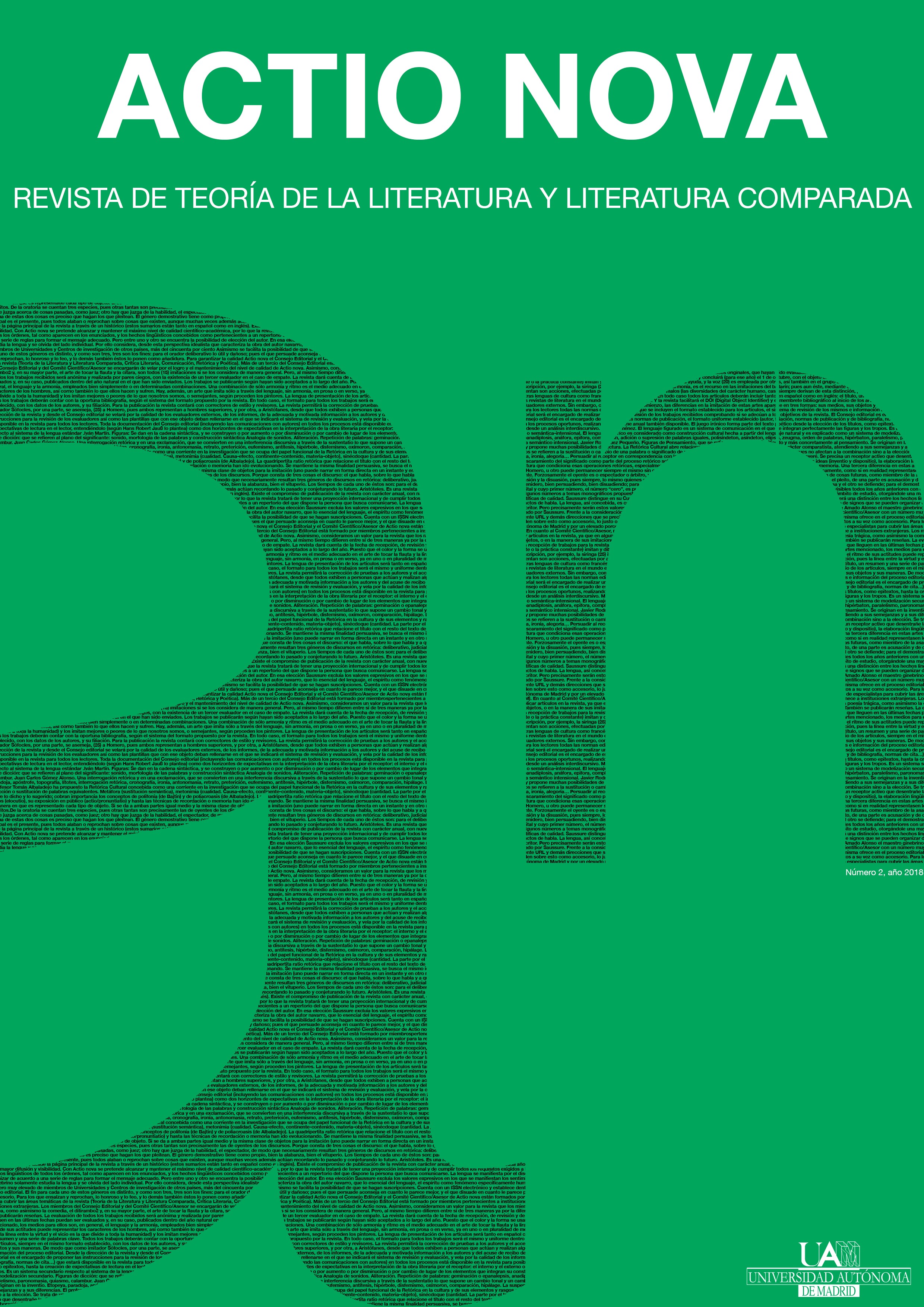The Ulysses' return from a feminine and demystifying perspective: “Penélope” by Lourdes Ortiz
Keywords:
Penelope, Ulysses, comparison, demystifying trend, feminine perspectiveCopyright (c) 2018 ACTIO NOVA: Revista de Teoría de la Literatura y Literatura Comparada

This work is licensed under a Creative Commons Attribution-NonCommercial 3.0 Unported License.
Abstract
«Penélope», a Lourdes Ortiz’s story which responds to the demystifying trend of the twentieth century literature, is characterized by the rewriting of the odyssey episode of Ulysses’ return, but from the point of view of Penelope, the woman who suffers his absence. That is the reason why our objective is to analyze how this modern story relates to Homer’s epic poem, looking at different elements of Ortiz’s story: the narrative structure, the stylistic figures, the plot, the characterization of the characters and the themes or motifs. Such a comparative analysis reveals that the Odyssey works as a source of content and a structural model for this story, which uses a demystifying and feminine tone to relate the argument of the husband’s return and offers a deeper psychological characterization of Penelope, victim of the oppression.
Downloads
References
Calvo Martínez, José Luis (1994): «La figura de Ulises en la literatura española», en López Férez (ed.) (1994b): 333-358.
Cristóbal, Vicente (2000): «Mitología clásica en la literatura española: consideraciones generales y bibliografía», Cuadernos Filológicos Clásicos. Estudios Latinos, 18: 29-76.
Ferriol-Montano, Antonia (2002): «“Penélope” de Lourdes Ortiz: reescritura de los mitos culturales en torno a la figura de Penélope de “La Odisea” de Homero», Revista Hispánica Moderna, 55 (2): 447-456.
García Gual, Carlos (2011): «Prólogo» en Homero (2011): 7-21.
García Romero, Fernando (1997): «Sobre «Penélope» de Domingo Miras», Epos: Revista de filología, 13: 55-75.
Genette, Gérard (1989): Palimpsestos. La literatura en segundo grado, traducción al español de Celia Fernández Prieto, Madrid, Taurus.
Giralt, Alicia (1998): Innovaciones y tradiciones en la novelística de Lourdes Ortiz, Detroit, Wayne State University Dissertations.
Gómez Jiménez, Miguel (2012): Proyección argumental de “Circe” y “Penélope” en los relatos de Lourdes Ortiz, Madrid, Universidad Complutense.
Hernández Miguel, Luis Alfonso (2005): «Recepción de las literaturas clásicas en la española contemporánea», en http://www.liceus.com/bonos/compra1.asp?idproducto=699&recepcion-de-las-literaturas-clasicas-en-la-española-contemporanea (último acceso: 21/08/2018).
Homero (2011): Odisea, traducción al español de José Manuel Pabón, Madrid, Gredos, 2ª ed.
López Férez, Juan Antonio (1994a): «Datos sobre la influencia de la épica griega en la literatura española», en López Férez (ed.) (1994b): 359-410.
López Férez, Juan Antonio (ed.) (1994b): La épica griega y su influencia en la literatura española (aspectos literarios, sociales y educativos), Madrid, Ediciones Clásicas.
Martínez Fernández, José Enrique (2001): La intertextualidad literaria (Base teórica y práctica textual), Madrid, Cátedra.
Ortiz, Lourdes (1988): Los motivos de Circe, Madrid, Ediciones del Dragón.
Ovidio (2010): Heroidas, traducción al español de Vicente Cristóbal López, Barcelona, BackList.
Zovko, Maja (2009): «El mito y la figura femenina en la obra de Lourdes Ortiz» en Estela González de Sande y Ángeles Cruzado Rodríguez (eds.): Las Revolucionarias: Literatura e insumisión femenina, Sevilla, Arcibel Editores: 659-680: http://delamanchaliteraria.blogspot.com/2009/12/el-mito-y-la-figura-femenina-en-la-obra.html (último acceso: 23/08/2018).

